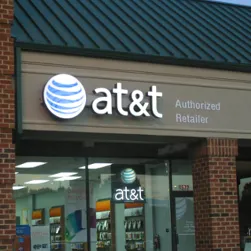


Black Friday is no longer a one-day event, thanks to such retailers as Best Buy, Macy’s, Toys ‘R’ Us and Walmart, all of whom decided to open their doors on Thanksgiving Day this year. The tactic resulted in a slight bump up in sales and a redistribution of traffic for the Nov. 28–Dec. 1 period, relative to last year’s comparable period. Brick-and-mortar retail sales rose 1 percent versus Black Weekend last year, as shoppers spent an estimated $22.2 billion across the four days, according to ShopperTrak, which monitors foot traffic.
“Retailers stretched Black Friday deals and promotions across November, removing the focus from just one big day of shopping,” said ShopperTrak founder Bill Martin in a press release. “Shoppers, in turn, paced themselves. They spread their shopping and spending not just across the holiday weekend, but also into the days and weeks before it, contributing to a decrease in last weekend’s shopper traffic. Customers also researched store merchandise online first and more often came to stores ready to buy particular products.”
ICSC Research tells a slightly different story, reporting a 2.8 percent decline in overall sales for the seven days ended Dec. 1 versus the previous week, and a 2.5 percent increase versus the comparable week in 2012. “Retailers certainly tried to entice consumers to shop this past week as they once again extended their hours and provided a number of door busters on Thanksgiving Day and Black Friday that lifted consumer traffic,” said Michael P. Niemira, ICSC’s chief economist and vice president of research. For the whole month of November, sales grew a disappointing 2.1 percent, mainly due to weak sales at apparel stores, according to ICSC Research.
The largest portion of what shoppers spent this holiday weekend was generated on Black Friday, at nearly $10 billion, according to ShopperTrak. Consumers spent $2.6 billion on Thanksgiving Day, $6.2 billion on Black Saturday (Nov. 30) and $3.7 billion on Black Sunday (Dec. 1), the firm reports.
Some argue that the sales raked in on Thanksgiving Day will hardly prove worth the added expense. “Those Thanksgiving Day sales were very expensive,” said Paula Rosenblum, co-founder and managing partner at RSR Research. “Every sales-dollar shortfall is accompanied by a payroll time-and-a-half extra charge and a dash of extra heating and lighting costs.”
Traditionally, the majority of Christmas shopping occurs in November and December, with the majority of shopping activity taking place between Black Friday and Christmas Eve. This year that period lasts only 26 days; last year it ran for 32 days. “Consumers have completed an average 37.3 percent of their holiday-gift buying as of December 1,” Niemira said, “which means there is still a lot left to do over the upcoming weeks, and the early performance typically is no bellwether of the season as a whole.”
